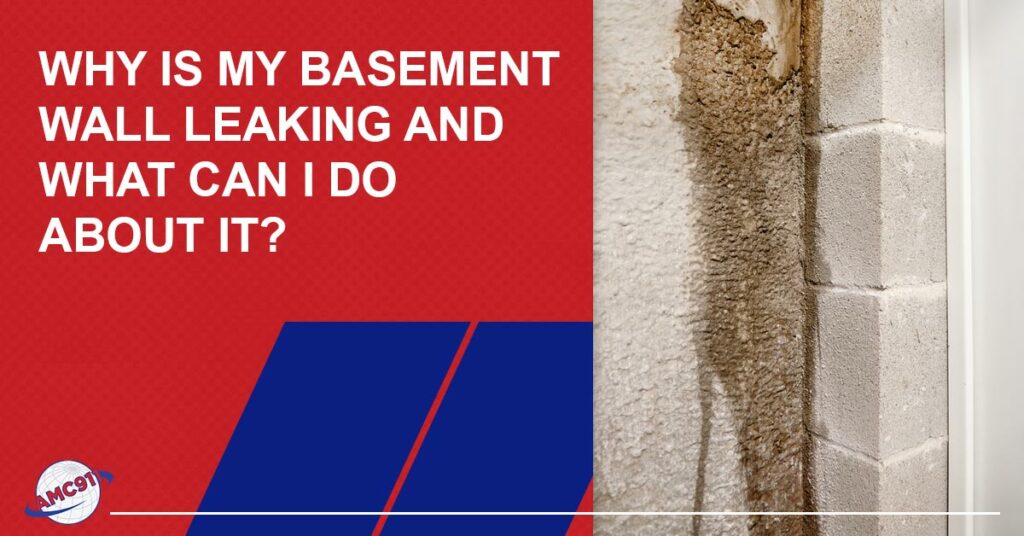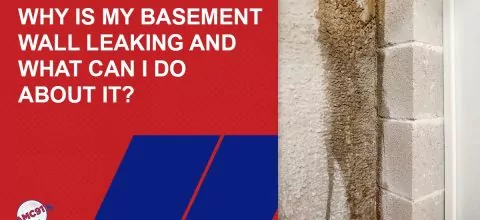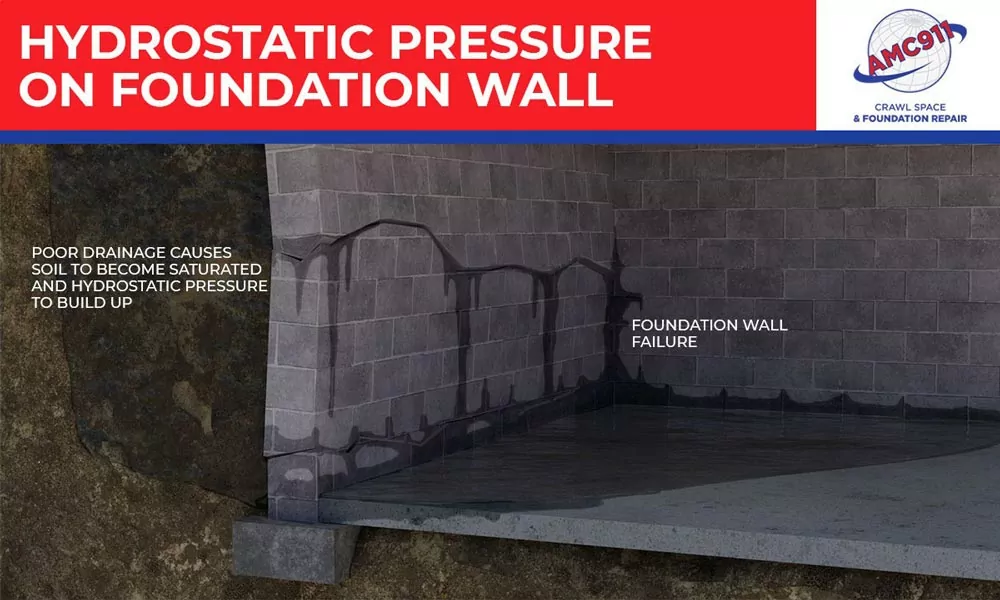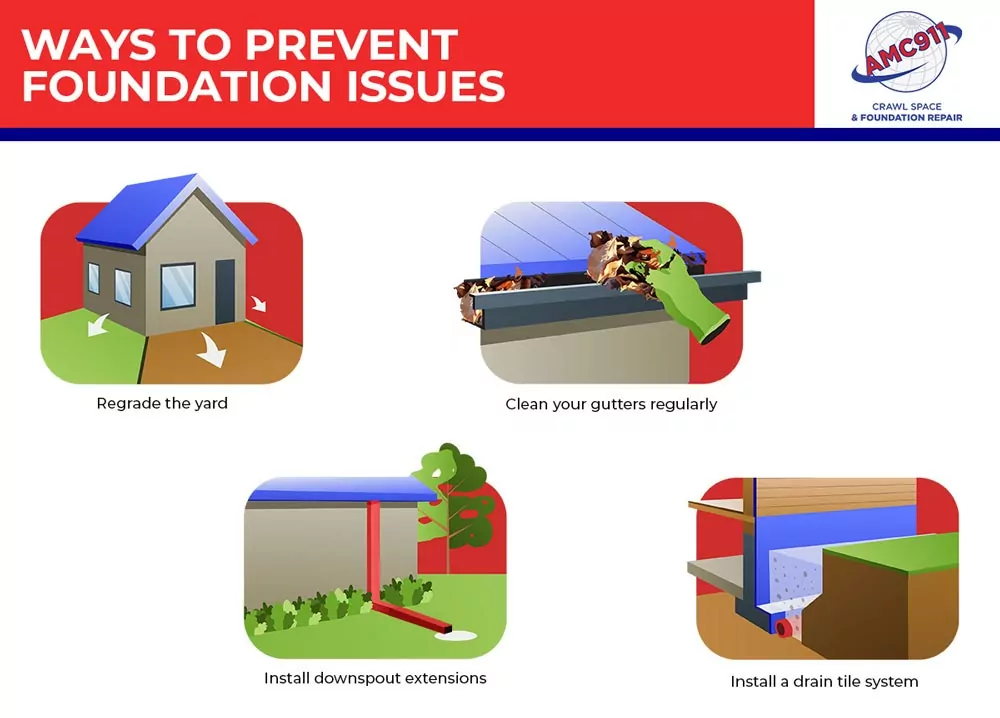Are you dealing with a leaking basement wall? It’s an annoying and unpleasant experience that can be costly to repair. However, knowing the possible causes of moisture entering through your basement walls—and taking the necessary steps to prevent them—will help keep such issues from occurring. In this blog post, we will explore why your basement wall might be leaking and discuss different solutions to stop your problem at its source.
What Causes Leaks In a Basement Wall?
The three main reasons behind basement wall leaks are shrinkage cracks, hydrostatic pressure, and leakage through the cove joint.
Shrinkage Cracks
Shrinkage cracks result from the curing process in a poured concrete wall. As the concrete dries, it naturally shrinks, forming tiny, thin cracks in the basement walls. These cracks may be small and relatively insignificant, but they can still act as passageways for water to enter the basement. Therefore, they should be sealed.
Hydrostatic Pressure
Hydrostatic pressure is a more potent force in causing basement wall leaks. This pressure results from water being trapped in the soil around the foundation. As the water accumulates in the ground because of poor drainage, pressure builds up and exerts a force against the basement walls. If the pressure isn’t relieved, the wall can bow inward and even crack, allowing water to enter.
Leaks Through the Cove Joint
The cove joint, which is located where the basement floor and the foundation walls meet, is not a sealed joint. As a result, any water that enters the soil surrounding the foundation can easily seep through the joint and into the basement, resulting in unwanted dampness, mold, and water damage.
Is the Leak Really Coming From the Basement Wall?
When it comes to water in a basement, it’s not always obvious where the water is coming from. Many homeowners assume that water seeping through the walls is the culprit, but this is not always true. In fact, what looks like a leaking basement wall might actually be a leak from a basement window or a plumbing leak.
Basement windows are a common source of leaks. Water can easily seep inside if the window wells around the basement windows are not correctly sealed. This is especially true if the ground around the window wells is not sloped away from the house. A similar situation can occur if the caulking around the window is cracked or missing.
Another possible cause of a leaking basement is a plumbing leak. Pipes that run through the basement walls or floor can leak, causing water to accumulate in the basement. A leaky water heater can also cause problems, especially if it’s located in the basement.
It’s essential to identify the root cause of the problem in order to take adequate corrective measures. This might involve thoroughly inspecting the basement, including windows, walls, and plumbing fixtures. Once the source of the leak is identified, it can be addressed with the appropriate repairs or upgrades.
It’s best to consult with a professional who has experience with basement leaks. They can provide insight and guidance on the best course of action based on your home’s specific circumstances. With the right approach, you can prevent future basement leaks and protect your home from water damage.
How to Repair a Leak in a Basement Wall
If you are facing a basement wall leak, it is essential to identify the cause of the problem before proceeding with a viable solution.
Repairing Leaks Caused by Shrinkage
In cases where the leak is caused by a shrinkage crack in the foundation wall, epoxy crack injection is a feasible repair option that can effectively seal off the leak and restore the structural integrity of your basement wall.
Epoxy crack injection involves using a two-part resin injected directly into the crack, where it hardens and seals the crack from the intrusion of water or moisture. This method is especially effective for repairing narrow cracks, and helps prevent further water damage from happening that could lead to more significant problems. It is also a cost-effective solution that can be completed within just a few hours.
Repairing Leaks Caused by Hydrostatic Pressure
A basement wall leak caused by a crack resulting from hydrostatic pressure will require a different approach. To repair this type of basement wall leak, carbon fiber straps can stabilize the wall and prevent further damage.
Carbon fiber straps are strong, durable, and resistant to corrosion and other damage that could compromise the structural integrity of your basement walls. They can be installed quickly and easily, and are an effective long-term solution that will provide ongoing protection against further water intrusion.
Repairing Cove Joint Leaks
A high-quality sealant will prevent water from entering through the joint and infiltrating the basement. Epoxy and polyurethane-based sealants are typically the best options to use, as they are both waterproof.
To ensure that the leak through the cove joint is permanently fixed, additional waterproofing methods may need to be put in place. This could include installing a drain tile system to divert groundwater away from the foundation and into an area where it can be effectively drained (more on this below).
For more information, see our article What Is A Foundation Waterproofing Membrane?
Tips on How to Prevent Basement Wall Leaks
The best way to prevent basement wall leaks is to keep the ground around the foundation dry. Here are some ways to do that:
- Regrade your yard – This involves adjusting the slope of the soil so that it directs water away from your foundation. This can help prevent standing water from accumulating near or around your home.
- Install downspout extensions – Downspout extensions are designed to channel water away from your foundation and prevent it from seeping into the soil around your home. Without downspout extensions, rainwater can accumulate near your foundation.
- Clean your gutters regularly – Gutters clogged with leaves, debris, or other materials can cause rainwater to overflow and spill onto the ground around your home.
- Install a drain tile system – If you live in an area with a high water table, installing a drain tile system can be an effective preventative measure. This involves placing buried, perforated pipes around your home’s foundation to collect excess groundwater and direct it away from your home.
If you’re concerned about a leaking basement wall, contact AMC911 today and schedule a free basement wall inspection. If we find a problem, we’ll provide you with a repair estimate.

















